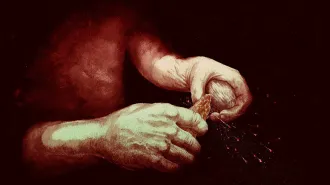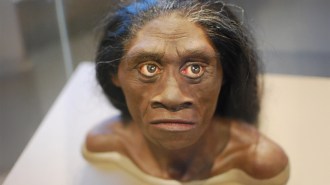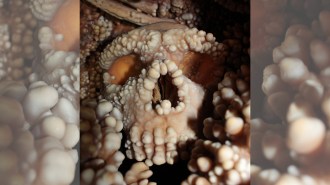Letters from the October 1, 2005, issue of Science News
Name game
Does the name of Honda’s robot, Asimo, have a meaning in Japanese, or is it just a tip of the hat to Isaac Asimov (“Easy Striders: New humanoids with efficient gaits change the robotics landscape,” SN: 8/6/05, p. 88)?
Dennis Lynch
Glenshaw, Pa.
Asimo’s name stands for Advanced Step in Innovative MObility.—N. Moreira
Under the waves, too
“Hurricanes get boost from ocean spray” (SN: 8/6/05, p. 94) reports on research indicating that winds above the ocean surface can increase due to an apparent damping of turbulence by particles of ocean spray. I would like to point out that a similar phenomenon has been identified in rivers. In situations where the transport of fine sediment particles (sands, clays) coming from the riverbed is large, the apparent bed friction is decreased compared with similar clear-water conditions. That decrease has been attributed to dampening of the turbulence by the suspended sediment particles. Perhaps a joint research effort would be mutually beneficial.
Michael Gee
Sacramento, Calif.
Wave goodbye
“The Human Wave” (SN: 8/6/05, p. 91) was very interesting, but it didn’t mention the possibility of a genetic bottleneck after Homo sapiens was already dispersed into Asia and then eliminated from everywhere but Africa by the Toba volcano in Sumatra 74,000 years ago. It has been said that during the colder times after the explosion, the cold-adapted Homo neanderthalensis repopulated the eastern Mediterranean, to be followed much later by H. sapiens again, when the climate became warmer.
Tana Hemingway
Las Cruces, N.M.
Our friends the dung beetles
“Siccing Fungi on Malaria” (SN: 8/13/05, p. 106) says that fungal sprays could kill nontarget insect species, “but most of those species people don’t want anyway.” That is a flippant way to blow off reasonable questions. “Most” means “not all,” so some of them people would want. And I would suggest that most people don’t want (don’t care about) worms or flies or dung beetles or the myriad scavengers that keep our world clean and livable.
Tom Turner
Newport, R.I.







